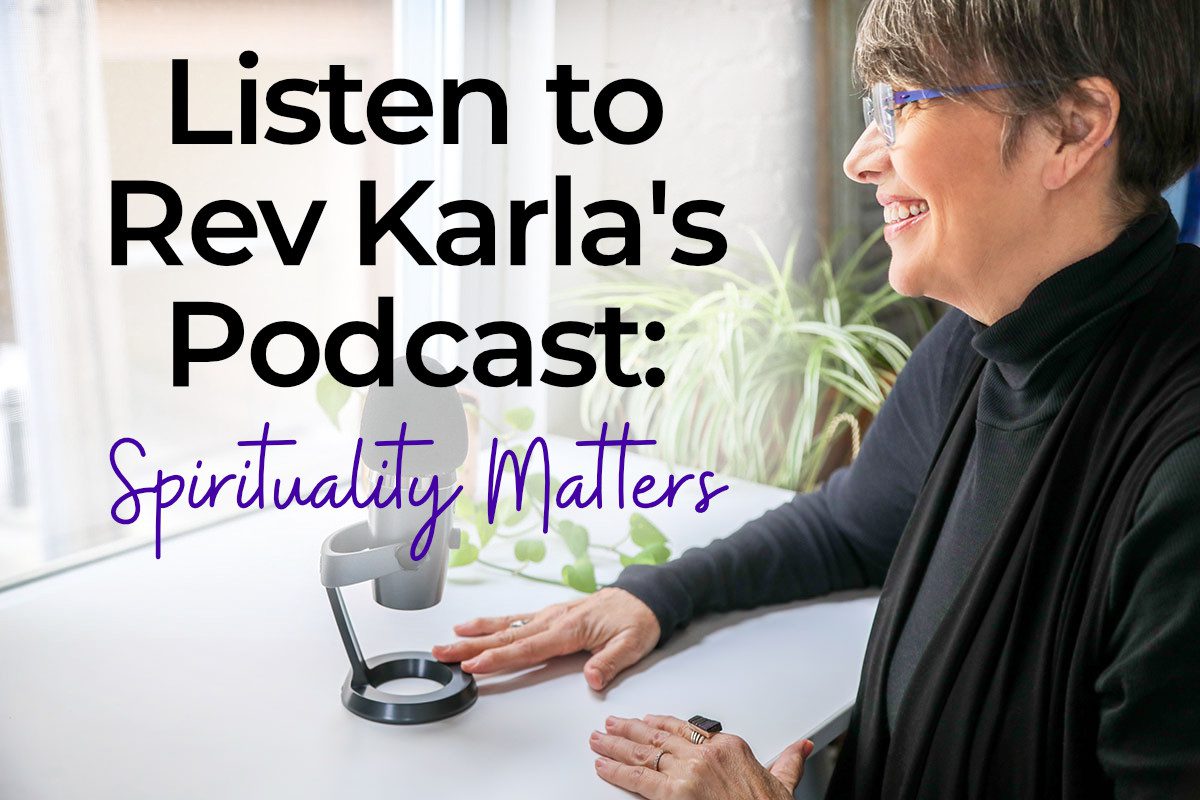
When Time Is All That Is Left | 5 Ways to Live in Gratitude
She was sitting in her wheelchair when I came through the door of the nursing home.
Strategically placed a few feet from the front door with just enough room to ensure the swinging door missed her as visitors came and went.
No one minded. We all understood why she was sitting there waiting and why it was important to her to be the only thing her pending visitor would see when he entered the building.
It’s an all-too common occurrence and perhaps a sad reality for the one who is waiting. Their mind has tricked them into believing that the only way they won’t be forgotten on this day is to be so close to the entrance that you literally will trip on them upon entering if you’re not careful.
I was there to see a friend. Upon entering, I smiled at the sweet old lady who was sitting there. She smiled and immediately returned to gazing out the door with an intensity that matched her need to be parked smack dab in the middle of the hallway.
This wasn’t just another day, and I would soon learn that this wasn’t just another visitor. I made my way to the sign-in desk, turning my back on the woman to scribble my name into the visitor log. 
As I turned to maneuver around her to head down the hall toward my friend’s room, the woman looked up and smiled. I said, “You look so pretty.” She smiled and said “I thought this shirt would be nice for today.” It was nice, and it was—as they say in the fashion world—seasonal. A deep purple pull-over blouse with a huge flower appliqued on the front in a busy paisley print, the fashion world would judge this blouse as “dated,” but someone whose life has become sitting in a wheelchair waiting for a special visitor, cares little about the fashion world.
There are things that matter more—much more. In her mind, the thoughtfulness she placed on her attire reflected her inner desire to be as present as she can be for those who would soon arrive. I remember hoping that when they arrived, they would notice the blouse and the flower.
In her lap, she held a porcelain three-tiered serving dish. She had a death grip on its top stem, intent on keeping it safe from harm. No doubt a distant memory played in her mind of how fragile porcelain was. Even if dropped on this carpeted floor from just a few feet from her lap to the floor, I too knew that it would explode into tiny pieces, rendering it unusable.
But there was no worrying about that now. This tray was not in any danger of falling, and when I told her how much I loved the tray, she said, “I bought it with my bingo money for my daughter-in-law. I sure hope she likes it.”
Now the words flowed freely as I had unlocked the sacredness of this day for an old woman sitting in a nursing home waiting for her family.
My friend would have to wait just a few more minutes.
I said, “Oh, tell me about bingo and how you bought that tray. That sounds fun, especially if you can buy things.” She said, “Well, when we play, we get bingo bucks. Then the girl opens the store, and we get to buy things. She finds some of the cutest things for us to buy. I don’t need this, but I thought my daughter-in-law might like it, so I bought it.” I sure hope so.
Her eyes lit up as she told me her story, and she lifted the tray for me to have a better look. I admired it and told her how lucky her daughter-in-law was to have someone as caring as she was.

She smiled and said her son should be there any minute to pick her up for lunch. This being the Saturday before Mother’s Day, I can imagine that all of this circled around this holiday that still held meaning for a woman whose time now centers around playing bingo and buying thoughtful gifts for her family who’ll come to visit her.
I told her “Happy Mother’s Day” and headed to see my friend. She and I visited for about 30 minutes before she became ill and asked me to leave—a sad and common occurrence as she walks closer to the end of life. As I made my way to the front entrance, I was sad to see the woman still sitting there.
For just a second, I wanted to be angry at the person for making her wait. But having had many friends and family in nursing or assisted living facilities, I know that if they show up for an appointment one hour prior to that appointment time, they feel they are late. I can imagine there are days that the only thing they have to look forward to is that one appointment, regardless of what it is.
And so they arrive way too early—and they wait.
I visited my friend daily after that until her death, and I never saw the woman again to find out if her daughter-in-law loved the dish. HIPAA makes it impossible for me to ask about her. After many years of traversing halls of nursing homes, I’ve learned to take those little moments—like that day with a stranger waiting on her son—as the entirety of the experience.
There is nothing more—it is all there was to that moment.
Except, is it?
That conversation stuck with me until I put it in my notes for a future blog, because I sensed that something sacred was asking for light. As I began to write about this story, it came to me.
This was a moment about gratitude.
It may seem counterintuitive that a story about an old woman waiting for her son can invoke gratitude. But let’s consider what gratitude means through our spirituality.
For many of us, gratitude was ingrained in us as an obligatory response to a gift that was given. We were taught that we have nothing to be anxious or sad about, because we are “blessed beyond measure” and simply looking at the situation wrong.
Millions of us have experienced toxic positivity, toxic over-abundance of joy and, yes, toxic gratitude. It’s one of the many reasons people crawl through life without any authentic positive emotions and are overwhelmed by anxiety and depression.
Well-intentioned parents and caretakers may have extracted forced compliance from children in an attempt to teach appropriate responses to kindness, generosity, and hurt feelings. Phrases like: “Say thank you for the gift” or “Say you’re sorry for hurting their feelings” are things we’ve all probably heard at one time or another in our own childhood, or perhaps have said to our own children. Experts don’t necessarily agree on the efficacy of forced gratitude, and what it actually teaches children, but more is being written on its impact as we mature.
In an article for PsychologyToday.com, education expert and analyst Alfie Kohn wrote candidly about the paradox of living with gratitude and forced optimism. Kohn highlights a direct link from our culture’s obsession with gratitude and our religious indoctrination and equates silencing our pain with religious teaching. After all, there is “someone somewhere who is living with far less and suffering far greater than you are at the moment.”
And if that doesn’t silence us, just remember that “Jesus died for you—how could you not live with gratitude?!”
The reality is that many of us were exposed to these teachings from an early age. Chances are good that we were never told that we are not obligated to minimize our humanity because of a belief designed to control the feelings of the masses. That belief binds us to an institution that prioritizes perpetuation of that institution over the individual’s well-being. These teachings keep us focused on the needs of the church rather than our own pain.
Kohn’s research would suggest that these beliefs also impact how we respond to someone who doesn’t appear grateful for a life that, from the outside, appears full and blessed. Think of a situation where perhaps a close friend or colleague shared a concern or a burden, and your response began with “At least,” or “Look on the bright side.” Or perhaps you were even more callous with something like, “Yeah, that’s a real problem. I wish I had that problem.” Perhaps someone said these things to you when you were seeking guidance or comfort.
Think of a situation where perhaps a close friend or colleague shared a concern or a burden, and your response began with “At least,” or “Look on the bright side.” Or perhaps you were even more callous with something like, “Yeah, that’s a real problem. I wish I had that problem.” Perhaps someone said these things to you when you were seeking guidance or comfort.
When someone passively rebukes our pain in this manner, we’re often left feeling raw, vulnerable, and perhaps conflicted with all of the emotions now swirling around us. Everything is intensified, because now not only do we have the pain, we’ve now been reminded that it is not valid. Old belief patterns may arise that remind us that we were silly to think that our pain deserved light.
The cycle of suppressing that pain begins again, where we internalize those indoctrinated beliefs to the point that “I’m hurting” is silenced with “Look at how blessed I am.”
Accepting Impermanence and moving toward gratitude.
If your relationship with gratitude is tainted by your indoctrinations, consider how shifting away from those indoctrinated beliefs may help you rediscover a sacred relationship with gratitude.
This shift may take time, but eventually we can begin to find the wisdom and sacredness in moments like holding space for an old woman waiting for her son. I don’t need to know her beliefs. I don’t even need to know her story. I can be a kind human to her by simply pausing to reflect to her what I hope others would reflect toward me when I someday find myself in a similar situation.
For it is inevitable—the passage of time comes for us all.
There is no escaping it.
So how do we begin to have a different relationship with gratitude? How do we discover its wisdom in these small moments of sacredness in our everyday lives? By acknowledging that suffering, dying, and impermanence are inherent parts of life, we open ourselves to the transformative power of gratitude.
Here are 5 easy ways where you can begin this journey to embrace gratitude and live a more fulfilling, spiritually-inspired life:
1. Embrace Impermanence and Appreciate the Present:
The Buddha taught us that impermanence is an integral aspect of our existence. Everything around us, including our experiences and relationships, is subject to change. By recognizing this fundamental truth, we can appreciate the present moment more deeply. Cultivate gratitude for each breath, each sunrise, and each interaction, knowing that they are fleeting and precious gifts.
2. Shift Focus from Lack to Abundance:
Gratitude allows us to shift our perspective from a mindset of lack to one of abundance. Rather than dwelling on what we don't have, we can train our minds to appreciate the blessings that surround us.
Jesus taught that gratitude should be expressed in all circumstances. He emphasized the importance of expressing gratitude in all aspects of life, regardless of the circumstances. He demonstrated this teaching in various instances, such as:
The Feeding of the Five Thousand: In Matthew 14:13-21, Jesus took five loaves of bread and two fish and miraculously fed a multitude of people. Before performing this miracle, Jesus gave thanks to God for the little food they had. His act of gratitude set an example of acknowledging and appreciating the abundance, even when it seemed insufficient.
3. Practice Mindful Reflection:
Mindfulness is a powerful tool that helps us cultivate gratitude. Take moments throughout the day to pause and reflect on the positive aspects of your life. Engage in mindful breathing, observing the sensations in your body and the thoughts in your mind. As you do so, acknowledge the gifts and opportunities that come your way. By anchoring yourself in the present moment, you can fully appreciate the blessings that often go unnoticed.
4. Express Gratitude Freely:
The Buddha emphasized the importance of expressing gratitude and appreciation. Share your heartfelt thanks with others, whether through a kind word, a handwritten note, or a small act of kindness. By expressing gratitude, you not only uplift others but also deepen your own sense of fulfillment. Cultivate a habit of acknowledging the goodness in others and the world, fostering an environment of positivity and connection.
Jesus taught that gratitude is expressed through service and generosity. Jesus emphasized that true gratitude is not just a feeling but is manifested through acts of service and generosity. He exemplified this teaching through His own actions:
The Parable of the Good Samaritan: In Luke 10:25-37, Jesus shared the parable of the Good Samaritan, where a Samaritan man showed compassion and gratitude by helping a stranger who had been beaten and left for dead. The Samaritan went above and beyond by providing care, shelter, and resources for the wounded man. Through this parable, Jesus taught that gratitude should be expressed by extending kindness, compassion, and assistance to others.
The Widow's Offering: In Mark 12:41-44, Jesus observed people putting money into the temple treasury. Many wealthy individuals made significant contributions, but Jesus noticed a poor widow who donated two small copper coins, worth only a fraction of a penny. Jesus praised her act, highlighting that her humble offering exceeded the others because she gave out of her poverty and with a grateful heart. This example teaches us that gratitude is not measured by the size or value of what we give but by the sincerity and gratitude with which we give.
These teachings of Jesus remind us that gratitude should be expressed in all circumstances and demonstrated through acts of service, generosity, and selflessness.
5. Transform Suffering through Gratitude:
The Buddha taught that suffering is an inevitable part of life. However, by embracing gratitude, we can transform our relationship with suffering. Rather than dwelling in pain and despair, we can find solace and growth by seeking the lessons and blessings within difficult experiences. Gratitude allows us to discover resilience, compassion, and wisdom amidst adversity, empowering us to live with a profound sense of gratitude even during challenging times.
One of Rumi's well-known writings that reflects his teachings on gratitude is the following:
"Thankfulness brings you to the place where the beloved lives."
In this verse, Rumi emphasizes that gratitude is a pathway to the Divine. He suggests that when we cultivate a grateful heart, we align ourselves with the presence of the beloved, which can be interpreted as God, the universe, or a higher power. By expressing gratitude, we create an environment within ourselves that is receptive to divine blessings and grace.
By embracing gratitude, we can find meaning in every aspect of our lives and open ourselves to the transformative power of the Holy.
Living with gratitude is a transformative practice that nourishes our soul. By accepting the realities of suffering, dying, and impermanence, we can cultivate a new awareness and understanding of gratitude.
Embrace impermanence, shift your focus from lack to abundance, practice mindful reflection, express gratitude freely, and transform suffering through gratitude. The story about the woman waiting for her son is a reminder that the road from birth to death is so much shorter than we realize.
May these five ways to cultivate gratitude help guide you on a path towards a more spiritually inspired and fulfilling life.
Looking to further your healing journey? Rev Karla understands that everyone’s spiritual journey is unique and deeply personal, that is why we offer communities for those desiring a safe and supportive environment. Engage with like-minded souls, and embark on a sacred journey of deconstruction, spiritual growth, and healing. Visit us online to join a community or Live event that speaks to you.
Engage with like-minded souls, and embark on a sacred journey of deconstruction, spiritual growth, and healing. Visit us online to join a community or Live event that speaks to you.


